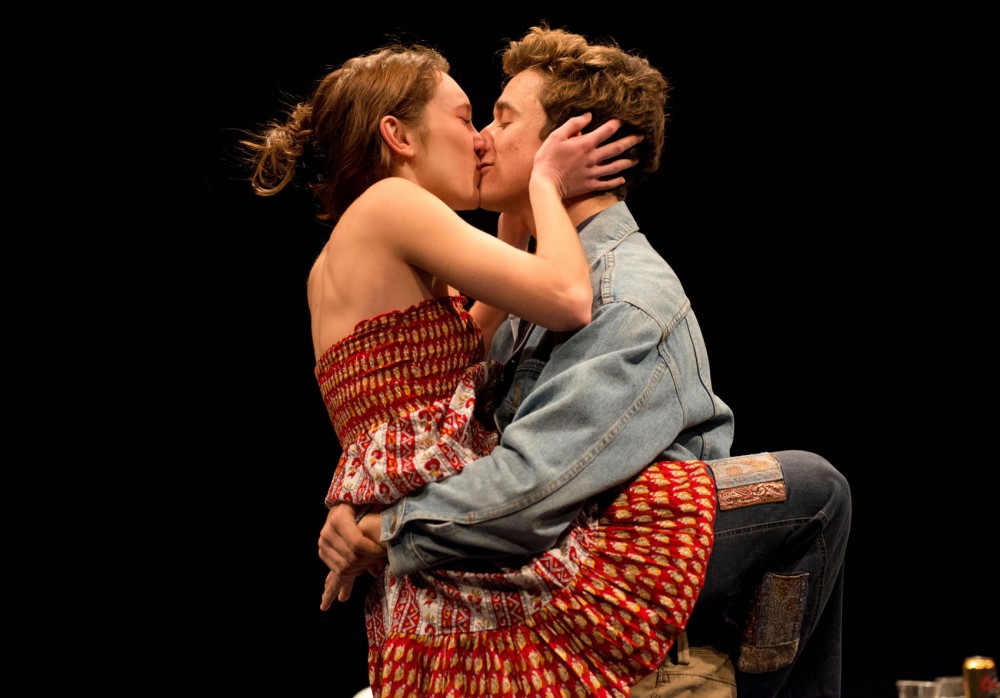What: “Loose Ends”
Where: Rarig Center, Kilburn Arena Theatre, 330 S. 21st Ave., Minneapolis
When: 7:30 p.m., Friday
Cost: Free, limited seating
It’s the decade historians pin up with words like “disillusionment” and “postmodernity”; the decade that wilted the bulk of the flower children and got a guy impeached. It’s the 1970s. It’s also the backdrop for Michael Weller’s dark romantic comedy, “Loose Ends.”
The play, which stars sophomore BFA acting students Rebecca Hurd and Riley O’Toole, opens Friday after two months of preparation.

“Loose Ends” spans a volatile nine-year romance between two passionate, stubborn people — from its optimistic start to its humiliating end.
O’Toole plays Paul, a young man caught between his idealism and what he fears to be his loosening grip on the harsh realities of life. His story begins after a long and, in his mind, pointless mission with the Peace Corps in Indonesia.
Hurd plays Susan, who begins as an eccentric amateur photographer. She’s in the middle of an extended walkabout when she meets Paul in Bali, where he’s vacationing. They fall in love.
“Loose Ends” spans the lovers’ marriage from its optimistic start to its inevitable crash.
An early scene sets the tone for their relationship. Paul is catching up with his friend Doug. Paul wants his friend to help size up his situation with Susan.
Doug puts it bluntly: If Paul has nights when he doesn’t feel the need to have sex with Susan, they have something special.
Shortly after, Susan confides in Doug’s partner, Maraya, just minutes after meeting her.
The lovers don’t articulate their feelings with each other at all until several scenes later, but by this point the blind spot in their relationship is so swollen they can’t salvage it.
While their relationship progresses on paper — Susan and Paul get married, respect each others’ independence and careers and so forth — they’re only candid when they speak with their friends.
“If they’d just figured their [expletive] out and moved on, there would be no play,” Hurd said.
It’s a reverse of the romantic formula: The universe seems to be pushing Susan and Paul together, but it’s the characters themselves who are the repelling forces.
“They discover that they just want totally different things out of life,” O’Toole said. “They grow apart.”
“Loose Ends” is first a romantic tragicomedy, but it branches into various other quirks and cornerstones of the decade, finally forming a portrait of the 1970s.
Paul embodies the disillusionment that’s associated with the Watergate era, while Susan’s growth as a professional photographer mirrors the gradual empowerment of women.
Their marriage shows how culture had by that point dissolved the substance of the marriage tradition. Sure, Paul and Susan got married, but they contorted the idea of it to suit their desires.
Ultimately they’re moving in different directions. They have such crystallized ideals and hopes that their relationship can’t sustain them, despite their intense attraction to each other
Hurd recalled a quote from her character that sums up their relationship: “We should’ve married other people and had a long affair.”















